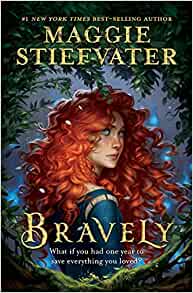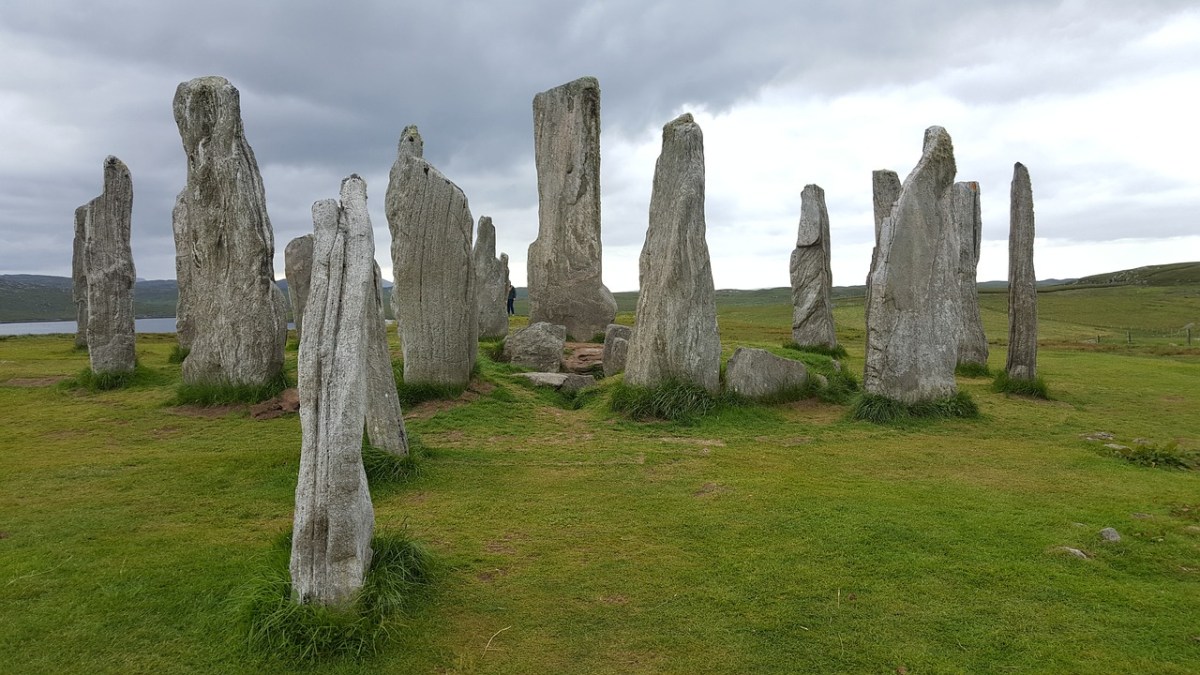Why, hello there. It’s been a hot minute, hasn’t it? Been relying on Bookstagram as my venue of choice for the past few months, but a new Maggie Stiefvater ARC will always inspire an un-social media amount of words and thoughts and feelings so LET’S. GO.

I should start with the disclaimer that I’ve avoided all of the Disney Press and Disney-Hyperion remix books for middle grade and YA readers so far, which makes me rather a snob. Why mess with a good thing? Isn’t that a cynical cash grab? Just leave your movies alone, Disney. To be honest, if Bravely weren’t written by my beloved Maggie, master craftsperson that she is, I most likely wouldn’t have picked it up.
Holy shit, am I glad I did.
Is this a sequel to the first Pixar movie to feature female leads, taking place a few years after the events of Brave? Yes, in the sense that all of the characters and places have the same names and the movie’s events are alluded two once or twice. But this story about ancient Scottish mythological beings and the balance between ruin and creation and the nature of true personal change is 100% pure heroin Stiefvater. I am a diehard fan of The Raven Cycle, and revisiting the TRC world through The Dreamer Trilogy has been such a gift for the past few years, but watching Stiefvater sink her creative teeth into a completely new world and mythology is thrilling.
THE STORY
I want to keep this post more spoiler-free than usual, since I’m posting so far before publication (May 3, 2022). Which will be tricky, but here goes.
A few years after the events of Brave, all is well in the kingdom of DunBroch. Merida leads a cozy, if repetitive, life, and so does everyone else in her family. The king is still jolly, the queen is still proper, the triplets are still mischievous, Merida is still fiercely independent. But DunBroch has attracted the attention of outside forces: not only a warlord threatening the borders, but also the Callieach, the Scottish goddess of creation, and Feradach, the god of ruin and destruction. When Merida happens to catch Feradach about to begin his destructive work on DunBroch, she makes a bargain with the god and goddess: now she has one year to bring change to DunBroch and her family members and undo her home’s death sentence. Thus begins a series of journeys, quests, battles internal and external, and a deeper appreciation for the close association between destruction and growth.
THE BABBLE
A reader doesn’t need to have seen the film at all to enjoy this novel. Stiefvater takes this world and these characters and makes them her own, giving them her distinctive flavor of dialogue and wit. Is it nice to hold in your head the film’s stunning visuals of Merida’s wild red hair as she gallops on her horse through the Scottish countryside? (Still need to do that before I die, by the way.) Of course it’s nice. But Stiefvater proves more than up to the task of bringing the world to vivid life anew, and in some ways, I wish I’d been able to meet Merida for the first time through her eyes, rather than occasionally thinking of the cartoon character created mostly by men.
The triplets, in particular, are tweens/early teens now, and each gets his own personality and character arc. The world around DunBroch expands in a way that feels “historical-ish” but still holds an air of myth about it. Feradach and the Callieach will steal your heart.
My only slight stumble is the epilogue: I’ve read it two or three times now and…I’m still not entirely sure what it’s saying. I think it’s meant to give me hope about certain plot developments? But maybe not. Normally I would give a book ***1/2 stars for a quibble like that but, just like the Callieach, when I am partial to someone, I cheat.
RATING
****
RANDOM BABBLE
- I love how Stiefvater sprinkles two or three occurrences of “change DunBroch’s fate” throughout the novel. Clever callback to the movie, and it reclaims the phrase, raising the stakes from a petulant teenager’s catchphrase to the quest to save an entire kingdom from a destructive god.
- There’s a new character named Leezie and she’s great. Trust me on that.
- The novel gives wonderful nuance to the concept of whether or not you can change another person (or manipulate them into situations where they might change themselves).
- I’m fascinated to learn more about how this book came into being. It seems different than the other Disney titles – not part of the Twisted Tales series, for example. Did Disney approach Stiefvater based on her previous work and her unique background? Or did Stiefvater’s agent pitch Disney the story idea (I think Maggie said at one point that she’s been playing with some of these ideas for ages)? It doesn’t really matter, but it would explain why the book feels like it could easily have been a novel about a different fantasy royal family, that just happens to be about the family from Brave.
What’s your favorite Stiefvater read? Are you excited to dive into Bravely?

